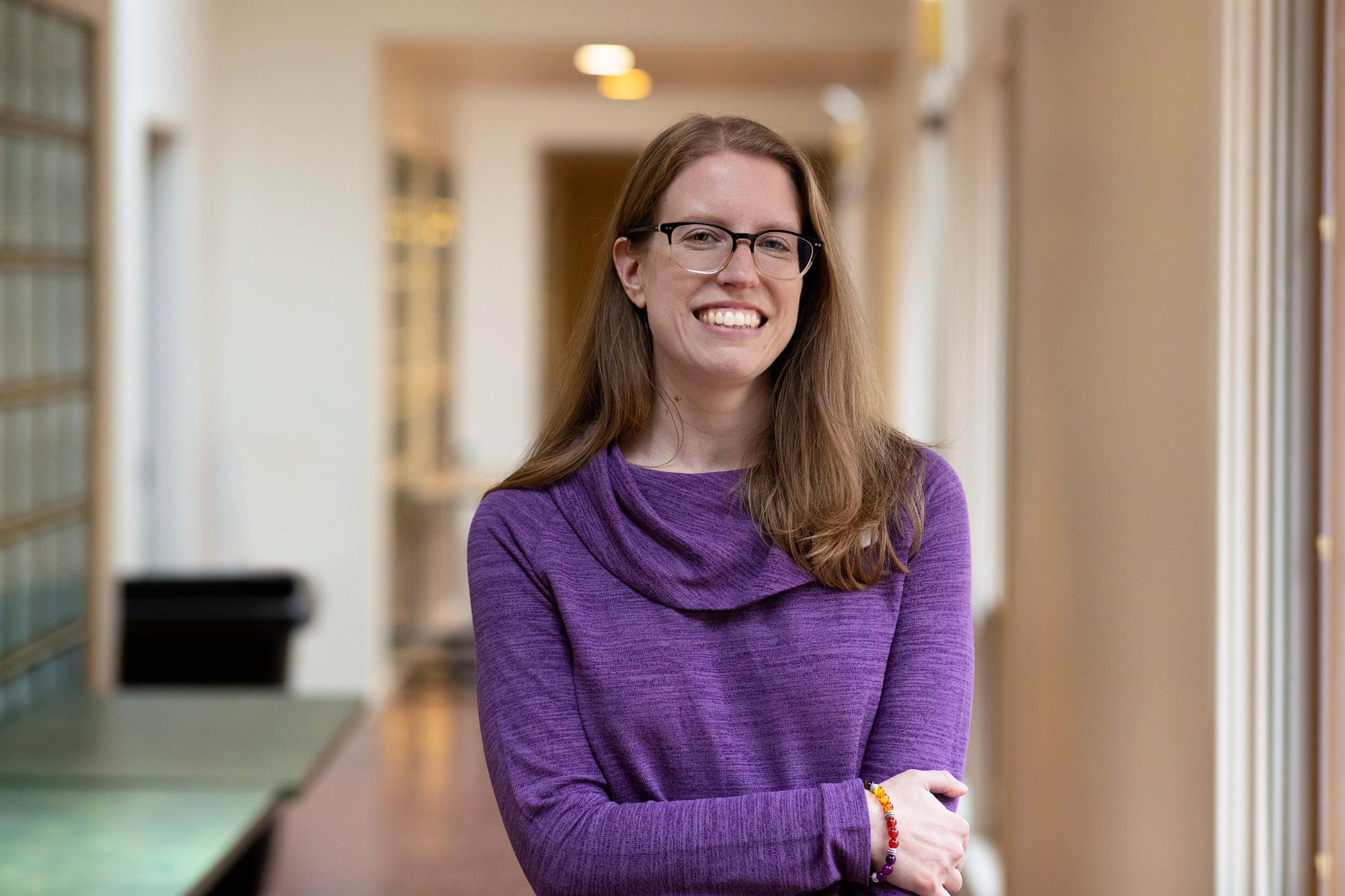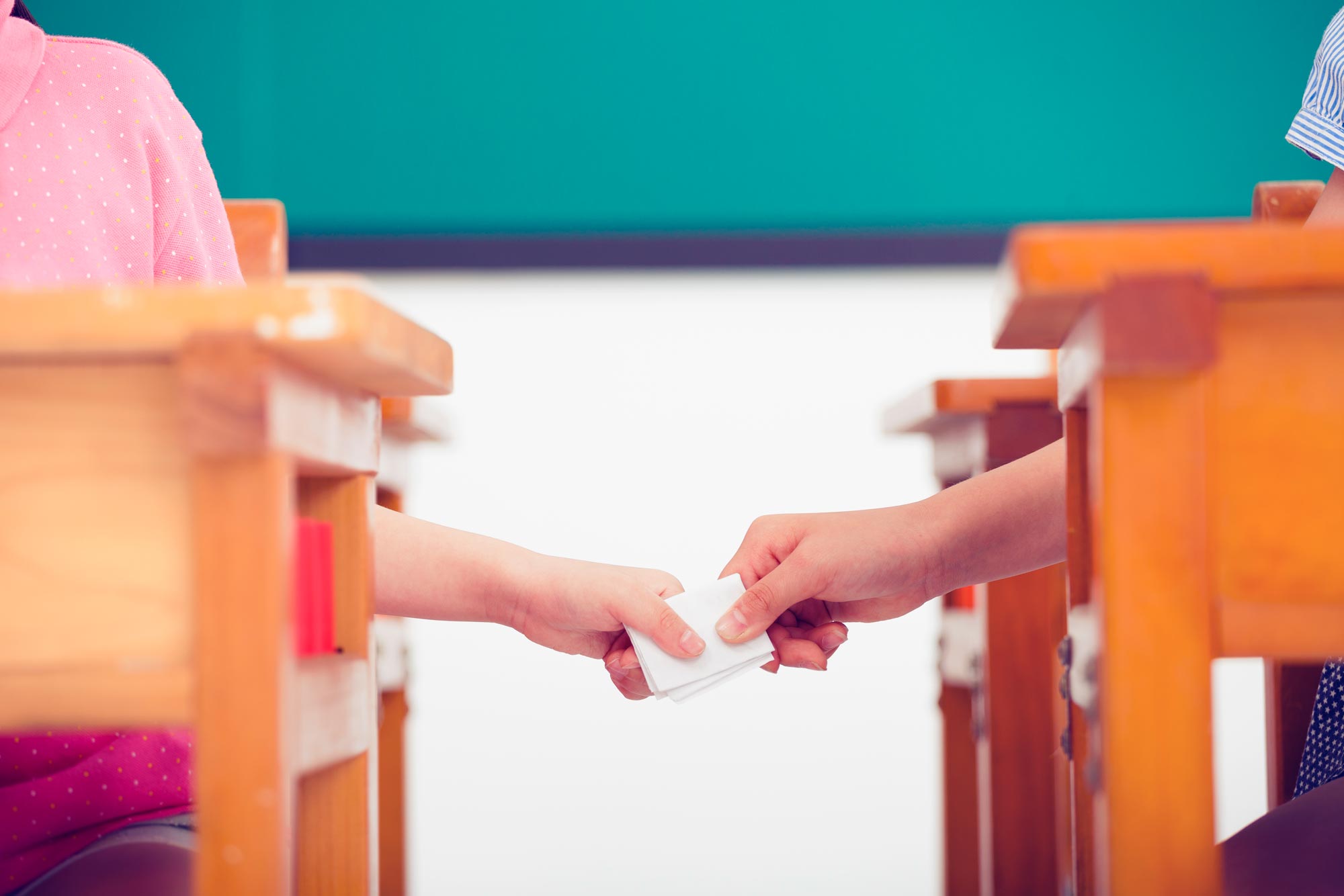Think back to your early teen years, that awkward time when you were transitioning from middle school to the big leagues: high school. You’ve been anticipating this move for years, and now that it is upon you, it’s clear you need to find your people, your peers.
Now you’re sitting in third period next your best friend, talking about weekend plans, when the teacher notices and draws your attention back to the lesson. Peers are a distraction, right? A bad influence.
Well, actually, no. New research from the University of Virginia has found that peers who are in healthy relationships may actually see improved grades early in high school.
What’s more, “Those teens with good quality friendships go on to complete more education by age 29, even accounting for their grades in middle school and several other factors like family income,” said Emily Loeb, the lead author of the study to be published in the journal Social Development.

Postdoctoral researcher Emily Loeb is the lead author of “Autonomy and Relatedness in Early Adolescent Friendships as Predictors of Short- and Long-Term Academic Success.” (Photo by Dan Addison, University Communications)
Loeb and her colleagues brought pairs of close friends into their lab beginning at age 13, gave them a hypothetical situation and observed how the two handled it. First, each friend was told they had to decide from a cast of characters who will be saved by boarding a shuttle to Earth. Then, they had to come together, compare their list of survivors and come to an agreement on who ultimately is saved.
Those who were found to have cooperated were also found to have good grades as they began high school.
The research team followed a local sample of 184 adolescents from age 13 to 29. In addition to having high grade-point averages from age 13 to 15, people who had close friends as young people were found to have achieved greater academic attainment by the age of 29.
So how do healthy relationships between young people have a positive effect on academic achievement?
“We think this has something to do with the ability to manage disagreements,” she said. “Our idea is that in this transition from middle to high school, that’s when kids are kind of separating more from their parents. Their peers are influencing them more. They have to deal with peer pressure more. It’s also a time when kids’ grades tend to slip from the transition from middle to high school.”
Loeb said having friendships in which young people can practice asserting themselves and maintaining a good relationship may help them to resist negative peer pressure to disengage academically.
Loeb is a postdoctoral researcher in the lab of Joseph Allen, UVA’s Hugh Kelly Professor of Psychology. He began studying this cohort of 184 adolescents in the late 1990s, and has produced a wealth of information on the psychology of the teenaged brain. Loeb began working on her project in 2011 as a graduate student and drew from some of Allen’s early data for the study.
She said she was not surprised to find that that quality friendships could predict better grades. But something did intrigue her.
“I was very surprised at how long-term it was. That it predicted academic attainment all the way to age 29. I didn’t know that we would find that strong of an effect,” Loeb said.
The study also controlled for a student’s popularity, “and we found that did not predict increasing rates. So, if your kid does not have a million friends, that does not seem to be the factor. It seems to be this ability to assert yourself and disagree constructively in a close friendship,” she said.
Loeb’s team did not take into account whether the pairs of friends had disciplinary problems or not. “If you are able to make your case in a relationship, I think that goes a long way beyond exactly who your child’s friends are,” she said.
The new study does not address what the future holds for adolescents who do not have healthy peer relationships. “But I certainly think there’s a lot of literature out there that suggests that people can develop social skills, can develop better friendships later in life,” she said. “This is suggesting that this is one route through which friendships might contribute to success. I don’t think it’s doom and gloom for those who don’t already have that.”
Media Contact
Article Information
February 5, 2020
/content/teen-besties-see-better-grades-high-school-and-academic-attainment-later-life

